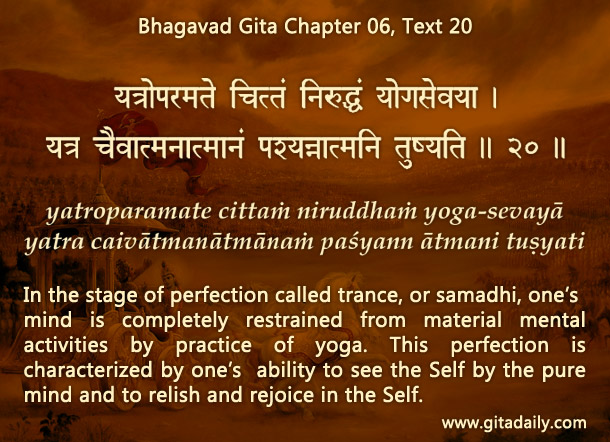“We are potentially spiritual” means that we have the latent capacity to become spiritual. When we refer to our spirituality as our potentiality, the implication is that just as potential writers can become proper writers, similarly, we all can spiritualize our consciousness.
Still, the usage “potentially spiritual” needs to be qualified. When someone is called a potential writer, that means they are not yet writers. However, we are already spiritual beings – the Bhagavad-gita’s second chapter states repeatedly and emphatically that we are souls who, by our constitutional nature, are essentially spiritual – our physical bodies are simply dresses for us souls.
Then, what about common statements such as, “We need to become more spiritual”? Such statements refer to orientation, not constitution. Though we are at our core spiritual beings, the present orientation of our consciousness is materialistic – we are infatuated with material things, believing that they will make us happy. When we practice yoga, especially bhakti-yoga, this infatuation is countered and our consciousness becomes spiritually oriented.
But how can we understand that we are essentially spiritual when so many material conditionings dominate our consciousness? Consider a jewel covered by thick layers of dirt. As its effulgence is not visible, it doesn’t look at all like a jewel. Still, it is essentially a jewel – it doesn’t have to become a jewel. As soon as the dirt around it is removed, it is seen in its effulgent beauty. The same applies to us.
The Bhagavad-gita (06.20) states that when sustained yoga practice frees our mind from material contaminations, then with the calmed mind, we can perceive our spirituality. And when our spiritual perception attains its zenith, we realize ourselves to be blissful parts of the blissful whole, Krishna.
To conclude, our spirituality is not something to be developed – it is to be realized.
To know more about this verse, please click on the image
Explanation of article:
Podcast:


Wow. Very nice.